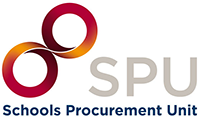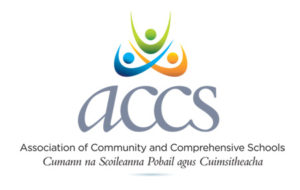Monitoring and Reporting of Energy Usage
Effective from December 2014, all Public Bodies, including schools, have a statutory obligation to monitor and report their energy use. The context for this requirement is the Government’s National Energy Efficiency Action Plan which has set the Public Sector a target of 33% by which to improve energy efficiency by the year 2020. All public sector bodies are now required to report annually on their energy usage and actions taken to reduce consumption in accordance with Statutory Instrument 426 of 2014, the regulations which transfers the EU Energy Efficiency Directive (Directive 2012/27/EU) into Irish law.
While recognising that this obligation on schools to monitor and report upon their energy use has the potential to be viewed as a further unwelcome administrative burden, this development does in fact present a positive opportunity for schools to proactively manage their energy consumption with a view to introducing local initiatives to target both increased energy efficiencies and expenditure (cash) savings, and reporting on their progress. The online Monitoring and Reporting system at https://www.seai.ie/energy-in-business/monitoring-and-reporting/for-schools/ is open for schools to log in and report energy use.
Pilot scheme in schools
In the 2013/14 cycle, the Sustainability Energy Authority of Ireland(SEAI) undertook a pilot scheme in which 11 schools, comprising of 8 post primary and 3 primary schools, agreed to use the Monitoring and Reporting system, and to provide feedback on their experiences. These schools ranged in size from 23 to 875 pupils, with annual energy expenditure from €3,000 to €131,000. Overall the pilot schools achieved a level of reporting as follows:
- 5 schools – very good – data as good as fully complete;
- 4 schools – good – data sufficiently complete to produce a valid return that should be fairly reliable;
- 1 school – OK but not enough data to produce valid return – i.e. missing activity metrics;
- 1 school – no data entered.
Among the key findings from the pilot were:
- The on-line reporting process could be simplified for schools;
- Tailored training, guidance materials, support, and clear communication and promotion of obligations will be required to achieve good compliance rates;
- Incentivise – promote the benefits of Monitoring and Reporting as an energy management tool; and
- Recognise the role of the participants following training & the submission of data, through accreditation, in a way that can enhance CPD.
Learning outcomes from the pilot
Those schools which participated in the pilot scheme and which appointed an ‘Energy Co-ordinator’ from volunteers among their staff – moving the role away from the desk of the principal/deputy principal – achieved the best returns. Some positive feedback from participating schools captured the experience thus:
- Monitoring and Reporting is a tool for Energy Management, and savings will be quantified;
- Easier to monitor energy usage;
- Easier to plan energy conservation measures, when you know how much of each type of energy you use;
- Monitoring and Reporting is a tool for awareness of the energy being used and the cost; and
- Other benefits cited recognised that the Energy Co-ordinator role provided career development opportunities.
Help, guidance and support developed specifically for schools
Picking up on the key findings from the pilot scheme – including feedback from pilot schools, management bodies and other stakeholders in the sector – a range of measures and tailored supports for schools have been developed and put in place (this is in addition to the extensive detailed guidance documents already available to all Public Bodies):
- Changes to the software system to address issues specific to schools;
- A workbook to facilitate compiling data required off line in advance of reporting;
- On-line tutorial videos to guide the user though the on-line reporting process;
- Schools specific FAQs;
- A helpdesk responding to e-mail and phone inquiries (ICT related queries); and
- Technical queries will be referred on to an energy advisor by the helpdesk where necessary.
The above supports and guidance for schools are available in the schools section on the SEAI website here
The SEAI and the Department of Communications Energy & Natural Resources are making ongoing enhancements to the on-line energy Monitoring and Reporting (M&R) system to make the process of tracking their progress towards the 2020 energy efficiency target more user-friendly for schools.
Indeed, the SEAI have stated that they would welcome feedback from JMB members on an on-going basis, as it would allow them to make the process as straightforward as possible.
The target for improved energy efficiency for the schools sector in aggregate is 33%. Each school is expected to contribute towards this. The Monitoring and Reporting system tracks each school’s contribution, by expressing its performance with respect to a 33% improvement by 2020. As well as enabling schools to report and track their energy data annually, the online system provides schools with:
- Online access to their annual electricity and natural gas consumption data;
- Optionally, allows schools to share relevant data with the Office of Government Procurement’s energy procurement framework; and
- A scorecard that presents a powerful snapshot of the school’s progress to date.
For more details on Monitoring and Reporting go to: www.seai.ie/PublicSectorReporting
School Management Bodies





